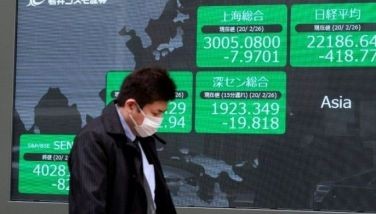With martial law, Thai government nearly powerless
BANGKOK — The question to Thailand's army chief was a basic one: After he declared martial law this week, would he be consulting the government? His response encapsulated the increasingly surreal nature of this Southeast Asian country's political crisis.
"Where is the government right now? Where are they now? I don't know," Gen. Prayuth Chan-Ocha snapped before adding awkwardly: "I'm not interfering with the government, or anybody."
But where, actually, is the elected leadership of Thailand? Few people here believe it is still running the country.
Six months of protests have forced its severely weakened Cabinet to shift offices constantly to avoid being harassed by demonstrators. By the time the army intervened Tuesday, a government that had been in firm power in November found itself caught off guard, its leaders meeting at an undisclosed location that one aide described as "a safe house."
As Thailand tries to make sense of a move that the army denies was a coup, one thing, at least, is certain: The nation's caretaker government has been rendered virtually powerless even as the rest of the country largely functions normally.
"Thailand is like a car driving on cruise control right now," said Sunai Phasuk, a senior researcher for Human Rights Watch in Bangkok. "But nobody is at the wheel, and it's probably going to crash."
Yet the crash, if it is coming, is happening in slow motion.
Glass-encased shopping malls and ornate temples are open as always. Bangkok's red-light districts still throb with activity. Civil servants still dutifully review passport applications and oversee driver's license exams. And for almost all of the country, no military is in sight.
On yesterday, Prayuth assumed the role of mediator by summoning the country's key political rivals for face-to-face talks. But the meeting ended without resolution, underscoring the immense challenges the army will face in trying to broker an end to the conflict.
Thailand has been plagued by major bouts of political turmoil since 2006, when the army toppled Prime Minister Thaksin Shinawatra, unleashing a deeper societal schism that continues to this day.
On one side: the members of Thailand's conservative establishment, who along with staunch royalists and the largely urban upper and middle classes see Thaksin's family as a corrupt threat to traditional structures of power.
On the other: a poorer rural majority in the north and northeast that was politically awakened by Thaksin's populist policies, which brought them everything from electricity to nearly free health-care for the first time.
When Thaksin's sister, Yingluck Shinawatra, was named prime minister after the ruling Pheu Thai party won a 2011 ballot in a landslide, she managed a fragile detente with the military.
And for a time, her government appeared to be firmly in charge.
In November, the ruling party made a disastrous attempt to ram a controversial amnesty bill through Parliament that would have allowed Thaksin to return from self-imposed exile from Dubai, where he lives to avoid a corruption conviction he says was politically motivated.
Protesters took to the streets, and when Yingluck dissolved the lower house in December and called new elections to defuse tensions, things only got worse. The dissolution limited her administration's powers so severely it had to seek approval from the Election Commission even to allocate funds to support state projects.
The country's courts and oversight agencies have also steadily chipped away the government's authority in rulings critics say show political bias. After demonstrators boldly stormed government ministries, attacked the prime minister's office with homemade rockets and threatened to "capture" Yingluck, courts quashed arrest warrants for protest leaders, arguing they had the right to demonstrate peacefully.
The Constitutional Court then annulled February elections that Yingluck's party would likely have won, citing the fact the ballot could not be held in all constituencies on a single day, even though that was because demonstrators — none was ever prosecuted — had openly obstructed the poll.
Now — two weeks after the Constitutional Court ousted Yingluck and nine Cabinet ministers for abuse of power for transferring a senior civil servant two years earlier — the army has imposed martial law. The army intervention dealt another severe blow to what's left of Thailand's increasingly cornered civilian leadership, now led by acting Prime Minister Niwattumrong Boonsongpaisan.
On Tuesday, Niwattumrong insisted "the government will continue its job in running the country" and would work with the army to peacefully resolve the crisis, which has killed 28 people and injured more than 800.
It can do little else.
"The only thing the caretaker government has left is electoral legitimacy, the fact that it came into power by elections," Sunai said. "But otherwise it has no power. Only the day-to-day bureaucracy is still functioning. No policy level decisions are being made."
Despite the imposition of martial law, protesters led by former lawmaker Suthep Thaugsuban say they will not give up. Since last week, they have pressed the army, the Senate and the nation's courts to install a "neutral" prime minister — something the government says is a threat to the nation's democratic system and would be tantamount to a judicial coup.
There are fears that if that happens, the government's Red Shirt supporters, who are now massing on the edge of Bangkok under the watchful eye of the army, will rise up and there will be more bloodshed.
Pavin Chachavalpongpun, an associate professor at Kyoto University's Center for Southeast Asian Studies, said that although the government's ultimate fate is uncertain, Thai history could be a guide.
"The traditional elites always tried to keep civilian administrations weak and vulnerable," Pavin said. "The only governments that survived were those who worked with the conservative establishment, rather than challenge it."
- Latest
- Trending




























